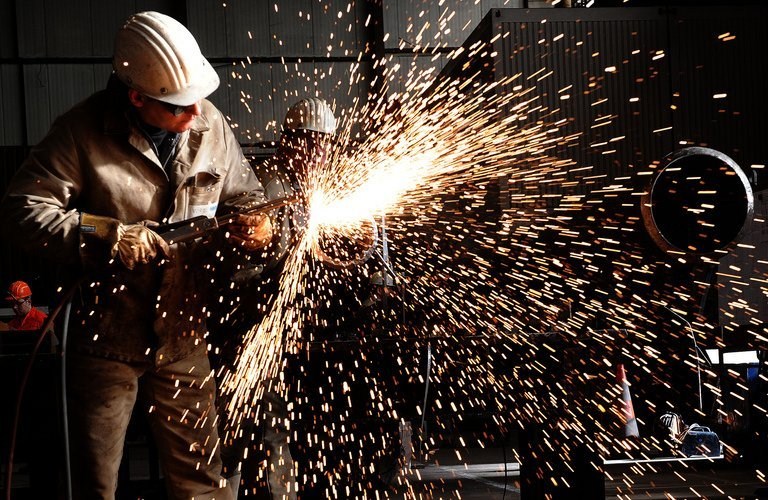Egyptian Iron and Steel company (IRON) recorded a EGP 57.9m loss during the first quarter of fiscal year (FY) 2015/2016, the company announced Sunday while Ezz steel reported an EGP 319m loss during the first three quarters of calendar year 2015.
Irons’ sales were all in the domestic market, as it has not exported any of its production. Iron’s net losses declined by 45% during FY 2014/2015 to reach EGP 558.76m. The company’s net losses in FY 2013/2014 totalled EGP 1.25bn.
Ezz Steel recorded a consolidated net loss of EGP 237.6 for the first half of 2015, compared to EGP 38.6m in profits registered during the same period last year. During the first quarter Q1, the company reported EGP 145.9m losses, compared to EGP 20.16m profits in Q1 2014. Revenues for the first nine months amounted to EGP 8.3bn, an EGP 1bn decline from the same period last year.
In April, then Minister of Industry and Foreign Trade Mounir Fakhry Abdel Nour imposed protection fees on imported rebar steel, at 8% for one tonne, or no less than EGP 408 per tonne.
The decision will last for three years, with the protection rates of the first year amounting to the prior mentioned fees. The following year, they will reach EGP 325 per tonne, and the year after they will stand at EGP 175 per tonne.
The decision came after temporary protection fees were imposed on imported steel for 200 days beginning from October 2014. The step was taken by the ministry to protect the local industry from a significant increase in steel imports.
In August, executive director of the Chamber of Metallurgical Industries, Mohamed Hanafy, told Daily News Egypt that steel imports are significantly increasing, which in turn affects the local industry.
He also said the implemented tariff on steel imports is not effective, adding: “Steel importers do not mind paying such fees as the price of steel is somewhat low in the countries from which they import.”
To limit importation, Hanafy suggested reapplying customs, as the minister noted several times, in order to encourage domestic industries.




